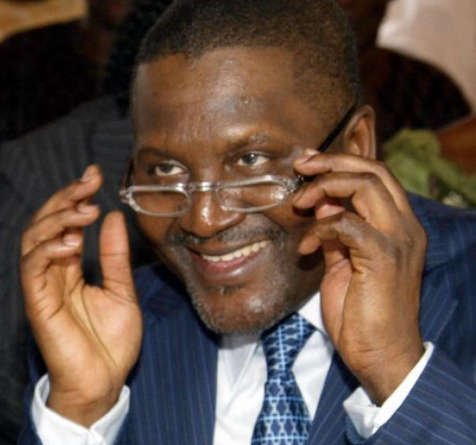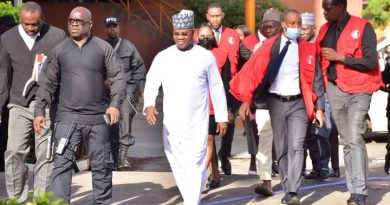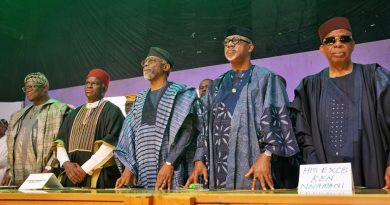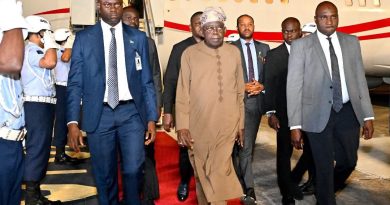5 Reasons Why Talk Of Dangote Being Broke Is Financial Illiteracy
Recently there have been publications in some online media to the effect that Africa’s richest man Aliko Dangote is broke, with his holding Company Dangote Industries Limited (DIL) said to be unable to complete its multi-billion dollars 650,000-barrel refinery in the outskirts of Lagos.
We believe such reports to be financial illiteracy and a lack of understanding of how modern finance works.
A simple definition of financial illiteracy is the opposite of financial literacy. Financial literacy is the knowledge necessary to make important financial decisions. It can help with decisions about budgets, debt, and investing.
Dangote is the 66th richest man in the world, and worth $21 billion, according to the Bloomberg Billionaires Index.
MoneyCentral will below breakdown the reasons Dangote cannot be ‘broke’ and how the current and future cash flows from all of his productive assets (sugar, cement, refining, salt, agriculture, fertilizer etc) are the source of his wealth.
DIL is a diversified conglomerate in Nigeria with a leading share in the cement business and a future key operator in the petrochemical industry through its fertiliser and oil refinery business.
Its strategy is to gradually establish a downstream industry in Nigeria and be the largest urea producer in Nigeria. It also aims to make Nigeria a net exporter of refined petroleum products and petrochemicals by 2026.
Dangote Cement shares is as good as currency…stupid!
Dangote Cement Plc (DCP), the flagship company of DIL, is a significant contributor to DIL’s consolidated profile.
The company is supported by large-scale operations in Nigeria and Pan-Africa. In 2021, DCP’s earnings before interest, taxes, depreciation, and amortization or EBITDA contribution to DIL stood above 90%.
In 2021, revenues from cement sales in all its operations (Nigeria and the rest of Africa) rose by 34% and amounted to N1.383 trillion. After paying taxes and making other expenses Dangote Cement reported profit of N346.4 billion.
Fitch Ratings forecasts that Dangote’s cement business will average $1.1 billion per annum in EBITDA between 2022 and 2025, making it one of the most profitable cement firms in the world.
DIL owns 85.8% of Dangote Cement.
Because of the expected free cash flows from the cement operations, Dangote cement stock which are listed on the Nigeria Exchange Limited, are valued at 14 times earnings, for a market capitalization of N5.11 trillion.
This means that from just one of his firms, Dangote Cement alone, Aliko Dangote is liquid to the tune of N4.38 trillion (representing DIL’s 85.8% ownership).
A liquid asset is an asset that can easily be converted into cash in a short amount of time. Stocks, money market instruments and marketable securities are generally considered liquid assets.
This alone debunks the notion of Dangote being broke as he can sell down his stake in the cement firm or borrow against its assets if he chooses, as a way to raise money.
Dangote Cement also pays a healthy dividend.
In 2021 the Directors recommended a dividend of N20 per share for shareholders. MoneyCentral calculates that DIL received N292 billion as dividends last year from Dangote Cement.
Fitch estimates that DIL’s refinery project is still on track to be completed by 2023, and requires additional $1.1 billion (N462 billion) of capex in 2022.
Equity sale in refinery
The Nigerian National Petroleum Corporation (NNPC) in 2021 took a 20% stake worth $2.76 billion in the Dangote refinery Project valuing the refinery at $13.8 billion then.
We believe the valuation is much higher today with the refinery nearing completion and current geopolitical landscape with the Russia – Ukraine war, which has sent commodities soaring.
Funding for the completion of the refinery project could then be gotten through further asset sales in the project.
DIL could today probably raise $2 billion with a 10% – 15% sale of stake in the refinery, more than is needed to complete the project.
MoneyCentral however believes this is unlikely as the refinery project is a future cash cow for DIL. Once operational, Fitch expects the project to contribute around $1 billion to EBITDA annually when ramped up from 2024.
Assets for loan
One way through which companies finance expansions or acquisitions is through loans backed by their existing assets.
Dangote Industries Limited (DIL) is planning to establish a local bond programme amounting to $750 million to partially finance the completion of its refinery and petrochemical plant.
Dangote Oil Refining Company Limited (DORC) and Dangote Fertiliser Limited (DFL), DIL’s subsidiaries, will be co-obligors under the proposed programme.
The bond programme, together with DILs retained earnings from its other operations should be enough cash to complete the refinery in MoneyCentral’s opinion.
Fertilizer
Dangote’s fertilizer plant was commissioned last year and there were 2 lines operational as of April 2022.
The fertilizer plant line 1 is expected to gradually ramp up to an average 60% capacity utilisation in 2022-2023 and to around 80% by 2025, from 25% in 2021. Line 2 will ramp to around 80% capacity rate by 2025 from 50% in 2022, according to Fitch.
The fertilizer plant is expected to be highly profitable also with 66% EBITDA margin in 2022-2025.
Prices of urea have soared as the Russia – Ukraine war affected commodity prices. urea FOB US Gulf for May delivery traded at USD630/ton yesterday (May 17).
Dangote Fertilizer plant has also begun exports of its product meaning it is earning foreign exchange for DIL, which can be channeled into the completion of the refinery project.
DIL Liquidity
Fitch estimates DIL to have an adequate liquidity score at 1.5x for 2021 with estimated total external group debt of $3.8 billion.
It has no significant maturities until 2023 when Fitch expects the refinery to start generating cash flow.
“We expect positive free cash flow FCF from 2023 when both projects (refinery and fertilizer plants) are ramped up and capex is moderate,” Fitch said.
In essence Aliko Dangote is far from broke and will continue to smile all the way to the bank as all his major projects : cement, refinery and fertilizer generate mountains of cash annually into the foreseeable future.




